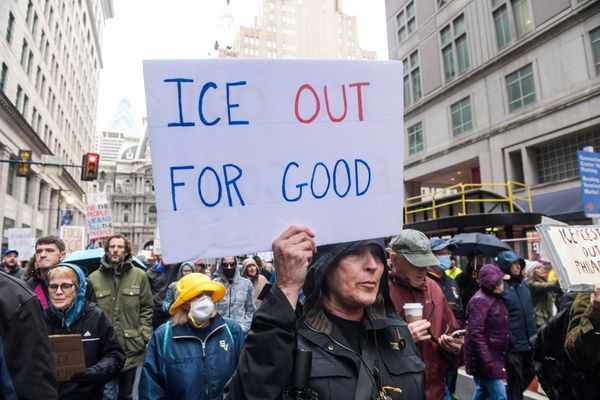Elon Musk late Friday proved that it’s a mistake to think of him as unpredictable. In a move that everyone from investors to casual observers have been predicting for many weeks, he formally bailed out on his $44-billion deal to buy Twitter.
Musk’s stated rationale for abandoning the deal, as set forth in a letter from his lawyers to Twitter, make no sense. They’re all based on his purported supposition that the condition of Twitter’s business is worse than the company has let on, but he presents no evidence to support his claims.
The word “appears” is forced to carry the major burden of his assertions. Twitter, he says in the letter, “appears to have made false and misleading representations” somehow designed to coax him into signing a merger agreement on April 25. The merger agreement, he contends, “appears to contain materially inaccurate representations.”
On the issue that he began pressing starting in mid-May as grounds to either renegotiate or abandon the deal — the proportion of Twitter accounts that are fake, spam, or automated bots — Musk’s Friday missive says “it appears that Twitter is dramatically understating the proportion of spam and false accounts” represented in its count of daily active users.
He says Twitter’s contention that it stops counting fake or spam users once it determines that the users are fakes “appears to be false.”
He also asserts that Twitter’s process for calculating its user numbers “appears to be arbitrary and ad hoc.”
Musk has made an issue of Twitter’s disclosures over many years that the proportion of fake accounts included in its user statistics is 5% or less. His letter says he has been caused “to strongly believe that the proportion of false and spam accounts included in the reported ... count is wildly higher than 5%.” To back this up, however, he cites no evidence.
Over the last two months, Musk’s behavior has made it plain that he would prefer to be out of this deal, even though the merger contract he signed left him only the narrowest options to do so.
He explicitly opted not to perform due diligence on Twitter’s books before signing the deal, but subsequently demanded information about Twitter’s inner workings — even though the term “due diligence” generally refers to scrutiny a prospective buyer performs before signing a deal, not afterwards.
Under the terms of the merger agreement, either party that bails out of the deal would be subject to a $1-billion penalty payment, though Twitter could also demand that Musk complete the deal on the signed terms.
The Twitter board said Friday that it’s prepared to sue Musk to complete the deal. “We are confident we will prevail in the Delaware Court of Chancery,” the board said.
What has happened to sour Musk on buying Twitter? There are several possibilities. One thought is that he was never serious to begin with, but hubris led him to convert a public musing about buying one of the world’s leading social media platforms into a real transaction.
Then there’s the possibility that he came to realize that managing a platform that attracts obstreperous users and an enormous amount of public attention would be an enormous pain in the backside.
A likely factor, if not the major factor, is that the value of technology companies has plummeted since April. That includes Twitter itself, and Tesla, the electric car company that represents most of Musk’s wealth through his ownership of its shares; he initially pledged many of those shares as collateral on financing for the Twitter deal.
Since April 25 through Friday’s trading, Twitter shares lost about 30% of their value. They never came close to the $54.20 per share he agreed to pay (the figure may very well be a marijuana-related joke ... don’t ask). Tesla shares fell about 25% in the same time frame, and as of Friday’s close were about 38% below their peak price of $1,208.59, reached on Nov. 1.
Amid the stock downturns, Musk announced May 13 that the deal was “temporarily on hold” because of his doubts about fake accounts.
Experts were doubtful from the start of his pettifogging that he had reasonable grounds to bail out. For starters, there’s no such thing in mergers for one side placing a deal “temporarily on hold.” Twitter, for its part, said then that work on closing the deal was proceeding normally.
“Merger agreements are designed to prevent exactly what Musk is doing now,” Tulane business professor Ann M. Lipton wrote on Twitter after Musk’s May announcement: “Have a buyer get cold feet and then nitpick to find some arguably ‘false’ rep that they can use as a pretext to avoid their obligations.”
A “material adverse change” in a company’s business is a common escape clause, but Lipton observed that it’s “a very high standard” that has been met once in the history of the Delaware business court with jurisdiction over this deal. “There’s no evidence that it exists here due to spam on Twitter’s platform.” Musk, again, didn’t provide any evidence on Friday.
The only question today is whether Musk can extricate himself, or more precisely, at what price. Barring a settlement, this whole deal looks like it’s destined to turn into one of the business world’s longest-running courtroom dramas.
It may look fascinating at this moment, but be warned: It’s almost certain to become very tiresome, very soon. If you haven’t already wearied of Musk’s clownishness, you will eventually. That’s a sure bet.







